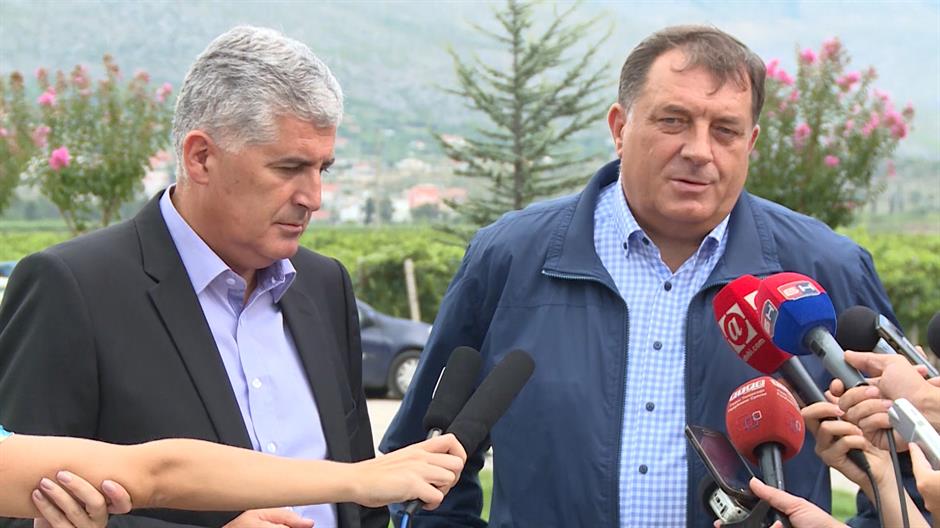
The leaders of Bosnia’s main Croat and Serb political parties are participating in an “Arria-Formula” meeting of UN Security Council members on Tuesday evening where the situation in Bosnia in light of the 25th anniversary of the Dayton Peace Agreement will be discussed, but Bosniak leader Bakir Izetbegovic turned down the invitation arguing that Bosnia’s institutions are being ignored.
To mark the 25th anniversary of the Dayton Peace Agreement which ended the Bosnian war and contains the country’s Constitution, the Russian Federation invited the leader of the Alliance of Independent Social Democrats (SNSD), Milorad Dodik, the leader of Bosnia’s Croat Democratic Union (HDZ BiH), Dragan Covic, and Izetbegovic, who is the leader of the Party of Democratic Action (SDA) to join the online meeting.
According to the invitation, the meeting includes four main questions for discussion:
“What factors affect the normalisation of relations between the three constituent peoples of Bosnia and Herzegovina?
What political and practical measures could be taken in order to help reduce mistrust among the constituent peoples and states in the region?
What can the international community, including the UNSC, do to support the full implementation of the Dayton Peace Agreement?
What can be done to facilitate the transfer of responsibilities for the development of the country to the three constituent peoples of BiH?”
"The invited briefers all hold important positions in BiH, but we really hope that we can hear their views not only as high-ranking politicians, but primarily as respective representatives of the three constituent peoples," the invitation said.
Izetbegovic explained that he decided to not participate in the meeting because he feels that the wrong people have been invited and that this is something the country’s tripartite Presidency should participate in.
“The wrong selection of participants from Bosnia and Herzegovina is on the scale of a worrying trend of bypassing and ignoring Bosnian institutions and elected representatives in those institutions,” the Bosniak leader said.
According to the UN, Arria-Formula meetings are “not envisaged in the Charter of the United Nations or the Security Council’s provisional rules of procedure,” but under Article 30 of the Charter, “the Council is the master of its own procedure and has the latitude to determine its own practices.”
The UN defined Arria-Formula meetings as “informal, confidential gatherings which enable Security Council members to have a frank and private exchange of views, within a flexible procedural framework, with persons whom the inviting member or members of the Council (who also act as the facilitators or convenors) believe it would be beneficial to hear and/or to whom they may wish to convey a message.”
“They provide interested Council members an opportunity to engage in a direct dialogue with high representatives of Governments and international organizations — often at the latter’s request — as well as non-State parties, on matters with which they are concerned and which fall within the purview of responsibility of the Security Council.”
Kakvo je tvoje mišljenje o ovome?
Učestvuj u diskusiji ili pročitaj komentare





 Srbija
Srbija
 Hrvatska
Hrvatska
 Slovenija
Slovenija







